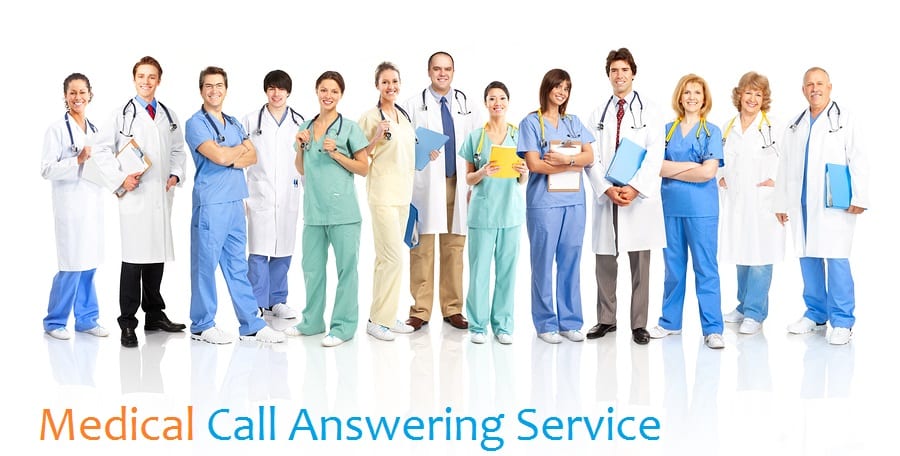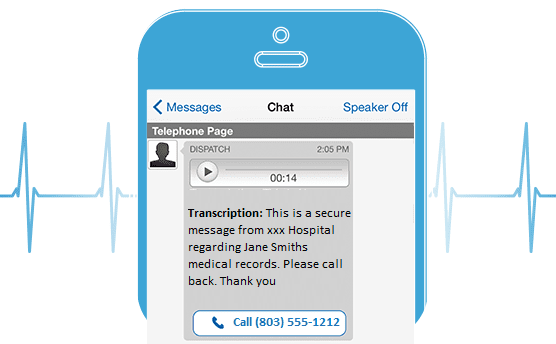
Medical Answering Service Buying Guide & FAQ’s
What is A Medical Answering Service?
A medical answering service is a virtual receptionist service that answers phones for doctors, hospitals, and physicians. Unlike a standard answering service, a medical call center generally has technology to encrypt and protect information collected from patients. This service can assist with a variety of tasks such as scheduling appointments, ordering prescriptions, triage, and general receptionist services.
How Does a Medical Answering Service Work?
Healthcare facilities simply forward their phone lines to their preferred call center and calls are then answered live, in your practices name. The answering service uses menu driven screens to accurately field hundreds of types of calls and to deliver messages to the correct party. This software can eliminate up 99% of all human error and tends to cost far less than using an in-house employee.
How Much Does A Medical Answering Service Cost?
On average the cost of medical answering services for a small practice runs around $175.00 a month, but the total price is driven by the number of calls taken and the duration of each call. As a rule of thumb the total price will be between $0.79 -$1.06 per minute.
What is a HIPAA Compliant Healthcare Answering Service?
HIPAA stands for Health Insurance Portability and Accountability and come from the Act of 1996. United States legislation provides data privacy and security provisions for safeguarding medical information. Not all medical answering services are HIPAA compliant; however most do use some type of software to protect health information via the flow of PHI transmission through their call centers.
What The Difference in Doctors Answering Services and Medical Answering Services?
There’s really not much of a difference in the two. However, unlike a doctors answering service, a medical answering service is generally more likely to offer support to larger healthcare facilities such as hospitals, which often require special IT work and software integration.
Can a Medical Answering Service Schedule Appointments?
Yes, a medical call center can schedule appointments using online calendars from Google, Yahoo, and in some cases they will train their staff to use your in-house calendar.
Can a Medical Call Service Confirm Appointments and Send Reminders?
Yes. Outbound calls can be made to confirm appointments and text / email messages can be issued for reminders or confirmations.
Can I Get My Phone Messages From My Answering Service Securely on My Cell Phone?
Messages can be sent to any cell phone, smartphone, or tablet. Devises storing PHI must meet HIPAA storage guidelines, and therefor if a business associate or sub-contractor sends PHI that is not password protected and the storage devise does not meet HIPAA guidelines the liability of HHS fines will reside on the covered entity. Ask your medical answering service how they protect PHI.
How Do I Forward My Phone to A Medical Answering Service?
The call forwarding process for landlines is generally done by dialing *72 (then waiting for tone) followed by dialing the 10-didget number you wish forward your calls to. Forwarding calls from cell phones varies by carrier and the model of your cellular phone. See your wireless provider for instructions on how to forward inbound calls to your cellular phone.
How Can I Reduce My Answering Service Bill For My Medical Practice?
Here are three (3) proven ways to cut your medical answering service bill from 10% – 35%.
- Reduce the amount of information taken from each caller. Medical call services bill for their time, and the longer the call the more cost. If possible have your call center simply take the name, number, and phone message of your callers. Canned responses can be given to let callers know what to expect and when.
- Avoid have the answering service transfer calls. Extra fees are added in when phone calls are patched through to your staff. You can save money by have your receptionist service take messages and tell the callers a call will be returned within an hour (or whatever).
- Set up your phone lines to only forward your calls when you don’t answer after 3 rings. This means you only have your overflow calls answered by the service when you can’t get to the phone within 3 rings. Call your phone carrier to set this up. Most of them call this service “conditional call forwarding”.
Can a Medical Answering Service Record Phone Calls?
Most medical answering service companies record phone calls and will save them in a .wav media file for up to 12 months. However, some states known as 2 party notification states require that both parties are aware the call is being recorded. In these cases either the call is not recorded, or the call opens with a full disclosure (sometimes by IVR). Generally this can be done by stating that ‘calls are recorded for training and quality assurance’.
How Does a Hospital Answering Service Work?
A hospital answering service works the same as medical answering services, expect they may also include a login that lets them find messages, escalate them, and mark them when complete. The software can also perform other things such are reassigning a task and confirming all patient needs have been addressed and closed.
How Do Answering Service Companies Protect Medical Information?
Medical information is protect through a variety of procedures including encryption and password protected messages, firewalls, and IPS Cloud Conduit. Additionally sub-contractors and shredding companies may be used to protect public health information (PHI).

